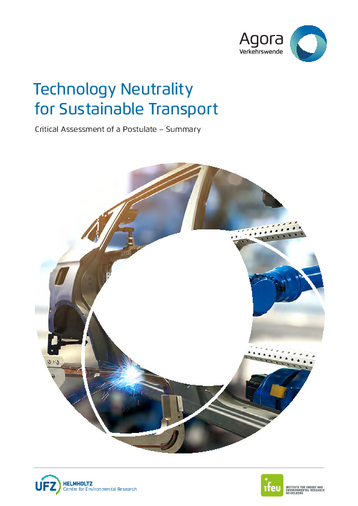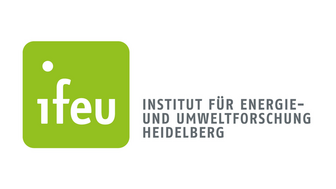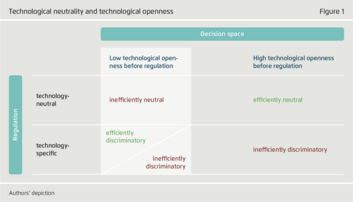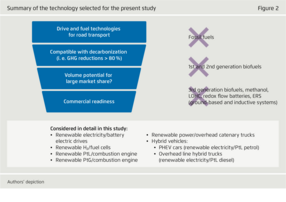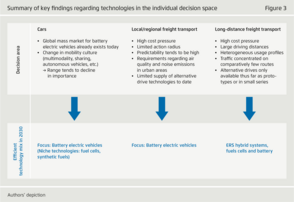Recent calls for technology neutrality have generated lively and controversial debates. But the discussions have also been characterised by conceptual vagueness. Many commentators use technology neutrality synonymously with the term technology openness. Others use these terms as a means to uphold the existing system. The lack of conceptual precision has spilled over into discussions about sustainable transport. Buzzwords have taken the place of arguments.
The purpose of this study is to provide basic conceptual clarity. Moreover, we want to supply the rational foundations for central policy decisions. In particular, we answer the question: Which regulation can ensure that the transition from internal combustion engines to low-emission drive trains and energy sources succeeds as cost-efficiently as possible?
The following study is no easy read. But it is nevertheless important. It takes an objective approach to discussions of technology neutrality and sustainable transport, creating the kind of solid foundation that expedient policy needs. And with the transition to sustainable transport set to begin in earnest, such policy is more urgent than ever.


